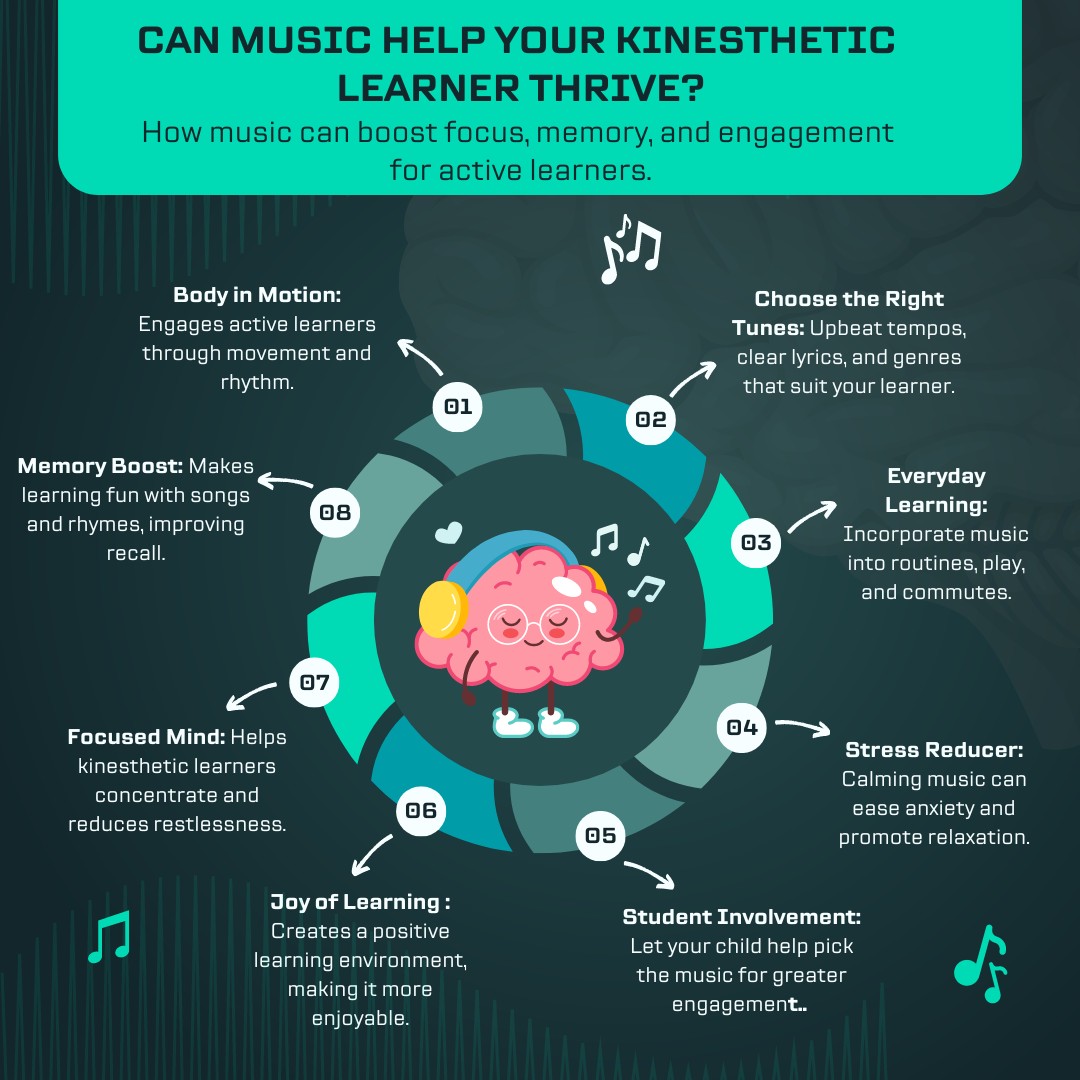Does your child struggle to focus in class or seem restless during homework? If they learn best through movement and hands-on activities, they might be a kinesthetic learner. Can music help kinesthetic learners excel? The answer is yes! Music offers a powerful way to engage these active learners. Let’s explore how!
What is Kinesthetic Learning?
Kinesthetic learners, sometimes called tactile learners, process information best through physical activity and hands-on experiences. They have a natural inclination to learn by doing. Here are some key traits of kinesthetic learners:
- High Energy: They often have difficulty sitting still for extended periods.
- Love of Movement: They excel at sports, dance, or building things.
- Learn by Doing: They grasp concepts best through hands-on activities and experimentation.
- May Struggle with Traditional Instruction: Lectures or reading-heavy lessons can be difficult.
How Can Music Help Kinesthetic Learners?
Music isn’t just about entertainment; it’s a multifaceted tool that can unlock learning potential for kinesthetic learners in surprising ways. Let’s explore the benefits:
- Engages the Body: Music naturally activates movement, whether it’s clapping, dancing, or playing instruments, catering to kinesthetic learners’ need for activity.
- Enhances Memory: Songs and rhymes help embed information in a fun, multisensory way, making it easier to recall.
- Boosts Focus: The right type of music can improve concentration and reduce restlessness in active learners.
- Creates Emotional Connection: Music taps into emotions, making learning more relatable and meaningful for kinesthetic learners.
- Reduces Stress: Music can have a calming effect, easing anxiety that might interfere with learning.

Strategies for Using Music in Learning
How can parents and educators harness the power of music to support kinesthetic learners? Here are some practical strategies:
At Home
- Movement Breaks: Play upbeat music and do simple dance moves or stretches during study sessions.
- Sing about Routines: Turn daily tasks like cleaning up into fun songs with actions.
- Learning through Play: Incorporate music and movement into games that reinforce academic concepts.
- Instrument Exploration: Let them play with simple instruments to experience rhythm, patterns, and sounds.
At School
- Musical Mnemonics: Create catchy songs or rhymes to help memorize facts, formulas, or vocabulary.
- Background Music: Play calming instrumental music during quiet work time to help kinesthetic learners focus.
- Action Songs: Use songs with movement to teach concepts like counting, the alphabet, or parts of the body.
- Musical Projects: Incorporate music into projects, like creating soundtracks to stories or composing short pieces.
Helpful Hint:
There are many pre-made educational songs available online for various subjects and age groups!
Choosing the Right Music for Kinesthetic Learning
Not all music is created equal for learning purposes. Here’s what to consider when selecting music for kinesthetic learners:
- Tempo: Upbeat tempos with a strong rhythm tend to be most engaging for kinesthetic learners as they encourage movement and focus.
- Genre: Depending on the activity, instrumental music, children’s songs, or even classical pieces can be effective. Upbeat pop music can be stimulating but might be too distracting for some learners.
- Lyrics: If using songs with lyrics, ensure they are clear, concise, and support the learning objective.
Helpful Hint:
Allow learners to participate in choosing music! This builds ownership and engagement.
The Power of Music in Everyday Learning
The benefits of music extend far beyond traditional learning environments. Here are some ways to integrate music into everyday activities for kinesthetic learners:
- Movement Breaks: Take a dance break during long car rides or incorporate music into chores.
- Travel Melodies: Create travel playlists with upbeat songs to keep energy levels high during journeys.
- Calming Music for Bedtime: Soothing instrumental music can ease anxiety and promote relaxation before sleep.
Stats:
A study by the University of California, Irvine found that listening to music can improve spatial-temporal reasoning, a critical skill for math and science in kinesthetic learners .
FAQs
Wrapping Up
By understanding the power of music for kinesthetic learners, we unlock a world of potential. Music offers a way for these active learners to channel their energy, boost their memory, and find joy in the learning process.
